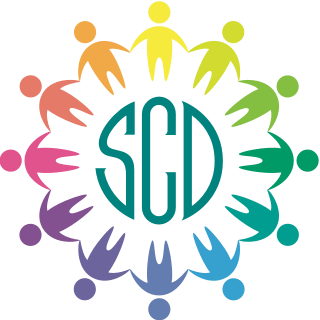Pavco-Giaccia, O., Fitch Little, M., Stanley, J., & Dunham, Y. (2019). Collabra: Psychology.
Read MorePublications
As per the guidelines of Fair Use, the PDFs here may be used for “criticism, comment, news reporting, teaching (including multiple copies for classroom use), scholarship, or research.” All other uses of the PDFs supplied are prohibited.
Implicit Intergroup Bias and the Long Road to Predicting Discrimination→
/Dunham, Y. (2017). The Wiley Handbook of Group Processes in Children and Adolescents,
Read MoreThe Development of Stereotype Content: The Use of Warmth and Competence in Assessing Social Groups →
/Roussos, G. and Dunham, Y. (2016). Journal of Experimental Child Psychology, 133-144.
Read MoreThe Development of Implicit Gender Attitudes (PDF)→
/Dunham, Y., Baron, A.S., and Banaji, M.R. (2015). Developmental Science, 1-9.
Read MoreOf Affect and Ambiguity: The Emergence of Preference for Arbitrary Ingroups (PDF)→
/Dunham, Y. and Emory, J. (2014). Journal of Social Issues, 70(1), 81-98.
Read MoreFrom a Different Vantage: Intergroup Attitudes Among Children From Low- and Intermediate-Status Racial Groups (PDF)→
/Dunham, Y., Newheiser, A., Hoosain, L., Merrill, A., and Olson, K.R. (2014). Social Cognition, 32(1), 1-21.
Read MorePreference for High Status Predicts Implicit Outgroup Bias Among Children From Low-Status Groups (PDF)→
/Newheiser, A., Dunham, Y., Merrill, A., Hoosain, L., and Olson, K.R. (2013). Developmental Psychology.
Read MoreBalanced Identity in the Minimal Groups Paradigm (PDF)→
/Dunham, Y. (2013). PloS ONE, 8(12), 1-13.
Read MoreReligion Insulates Ingroup Evaluations: The Development of Intergroup Attitudes in India (PDF)→
/Dunham, Y., Srinivasan, M., Dotsch, R., and Barner, D. (2013). Developmental Science.
Read MoreFrom Categories to Exemplars (and Back Again) (PDF)→
/Dunham, Y. and Degner, J. (2013). In Banaji, M.R. & Gelman, S.A. (Eds.), Navigating the Social World: What Infants, Children, and Other Species Can Teach Us. New York: Oxford University Press.
Read MoreTwo Signatures of Implicit Intergroup Attitudes: Developmental Invariance and Early Enculturation (PDF)→
/Dunham, Y., Chen, E., and Banaji, M.R. (2013). Psychological Science, 24(6), 860-868.
Read MoreSelf-Enhancement Following Exposure to Idealized Body Portrayals in Ethnically Diverse Men: A Fantasy Effect of Advertising (PDF)→
/Skorek, M. and Dunham, Y. (2012). Sex Roles, 9, 655-667.
Read MoreAn Angry = Outgroup Effect (PDF)→
/Dunham, Y. (2011). Journal of Experimental Social Psychology, 47, 668-671.
Read MoreThe Language of Implicit Preferences (PDF)→
/Oguinnaike, O., Dunham, Y., and Banaji, M.R. (2010). Journal of Experimental Social Psychology, 46(6), 999-1003.
Read MoreThe Development of Implicit Social Cognition (PDF)→
/Olson, K.R. and Dunham, Y.D. (2010). In B. Gawronski & B. Keith Payne (Eds), Handbook of Implicit Social Cognition: Measurement, Theory, and Applications. New York: Guildford.
Read MoreThe Development of Implicit Intergroup Cognition (PDF)→
/Dunham, Y., Baron, A.S., and Banaji, M.R. (2008). Trends in Cognitive Sciences, 12(7), 248-253.
Read MoreChildren and Social Groups: A Developmental Analysis of Implicit Consistency in Hispanic-Americans (PDF)→
/Dunham, Y., Baron, A.S., and Banaji, M.R. (2007). Self and Identity, 6, 238-255.
Read MoreSome Experiments on the Development of Intergroup Social Cognition (PDF)→
/Banaji, M. R., Baron, A., Dunham, Y., and Olson, K. R. (2007). In M. Killen & S.R. Levy (Eds.), Intergroup Attitudes and Relations in Childhood Through Adulthood. Oxford: Oxford University Press.
Read More
